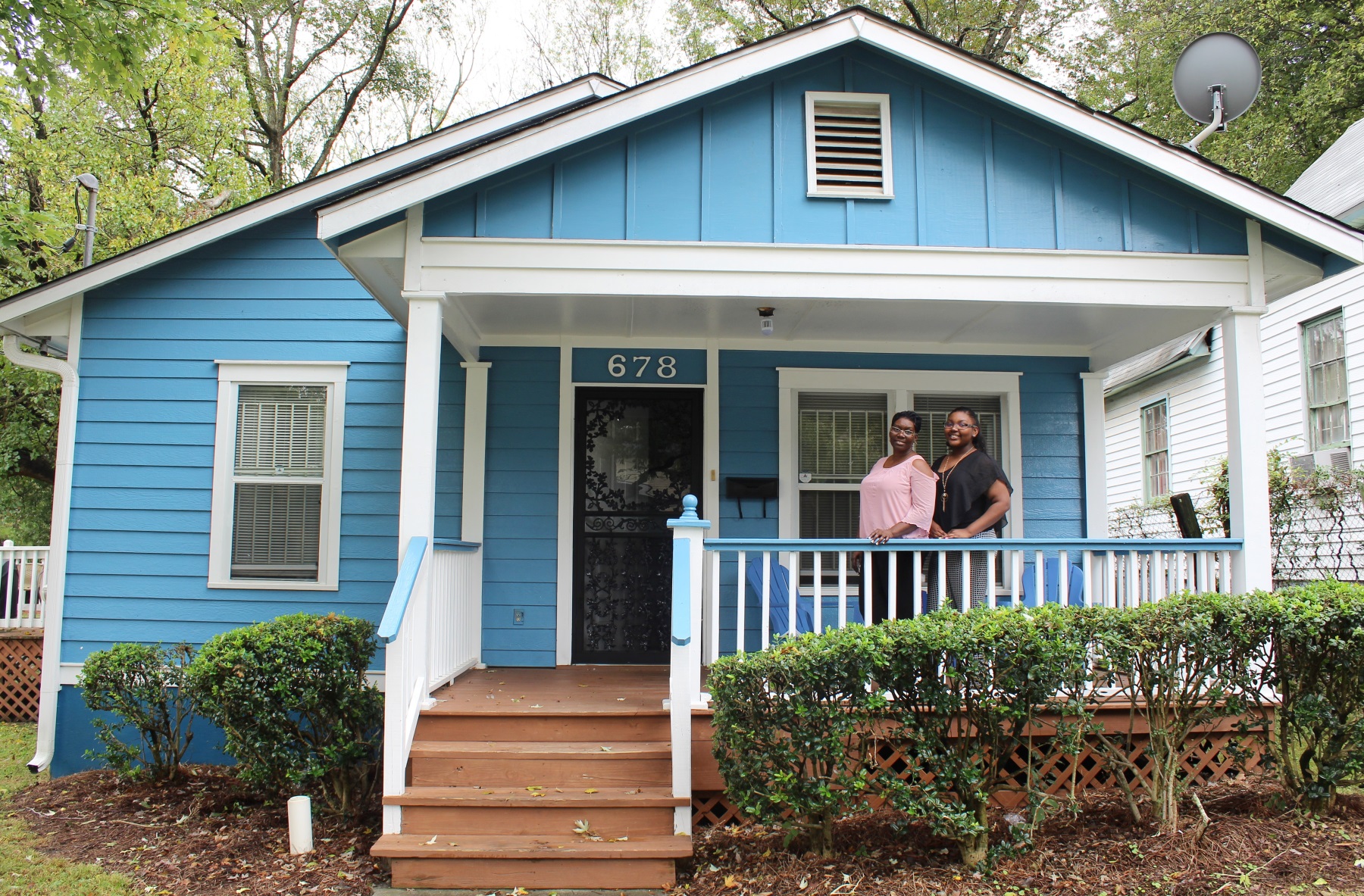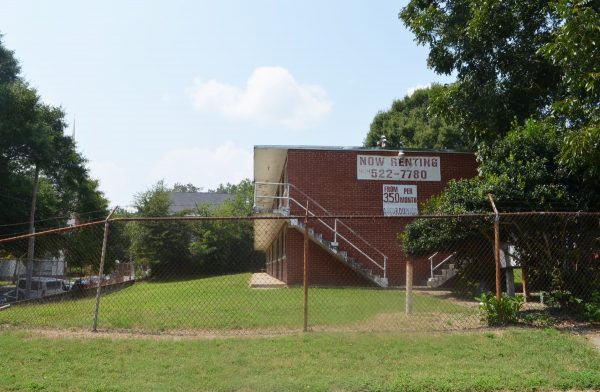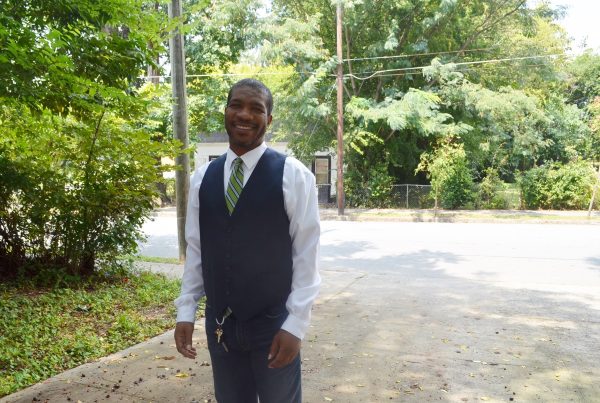To Prevent Displacement, Westside Program Targets Property Taxes

Renee Sanders stands with her daughter outside her home in the English Avenue neighborhood. Sanders won’t have to worry about rising property taxes, thanks to a new program.
Stephannie Stokes / WABE
At the end of a short street in the English Avenue neighborhood is Renee Sanders’ home. It’s bright blue.
“This is my favorite color,” Sanders said.
Sanders painted it herself one weekend with a friend. It’s one of the many improvements she’s made since she bought the house 20 years ago.
Now, as Mercedes-Benz Stadium and the Atlanta BeltLine have sparked investment around English Avenue, she’s finally watching the long-neglected area around her house improve.
“I’m ready for the changes. I guess I’m tired of seeing what I see in the neighborhood,” Sanders said. “So it’s time for a change.”
Still, change did create some anxiety for her. New development and amenities would bring up her home’s value. And that would bring up her property taxes.
“I’m a single parent. So yes, it would be hard for me because I’m taking on everything,” Sanders said. “So that would have been another whole bill.”
She said, “would have been,” because now there’s a program to pay that bill called the “Anti-Displacement Tax Fund.” It will cover all property tax increases in the neighborhood for the next 20 years.
The roughly $5 million fund, supported by private donations, is city and business leaders’ answer to the Westside’s pressing question: How do you revitalize a neighborhood without pricing people out?
John Ahmann, executive director of the nonprofit Westside Future Fund, which manages the program, said it’s targeted at longtime homeowners like Sanders.
“Many of them are on fixed income, so their ability to afford the property tax increase, they wouldn’t be able to do it,” he said. “Which would then push them to sell their home, even if they didn’t want to.”

The program aims to prevent that. After all, Ahmann said, the Westside Future Fund and the city are working to make neighborhoods like English Avenue more livable, with new parks and better schools.
“The end game is to help the residents in these historic neighborhoods build better lives. And we can’t help them if they can’t stay,” Ahmann said.
But recent research shows limiting or freezing property taxes might not be the most effective way to shield residents from rising housing costs.
Isaac Martin, a sociology professor at the University of California, San Diego, studied these kinds of programs in other cities.
“These policies do not do much to protect homeowners from displacement in gentrifying neighborhoods,” Martin said, “in part because the displacement of homeowners turns out to be a lot more rare than we thought.”
According to Martin’s study, homeowners don’t face more displacement in gentrifying neighborhoods than anywhere else. Instead, he found a different population was at risk.
“Most of the displacement that happens as a result of gentrification really happens to renters,” he said. “They tend to be lower-income people. And they tend to be people who, therefore, are operating with less of a financial cushion.”
And renters are most residents around English Avenue: About 90 percent.
Leslie Canty has leased his home at the western edge of the neighborhood for nearly a decade. During that time, he’s worked to clean up the area and move crime off his block.
His family has mixed feelings about the new interest from investors and developers. On the one hand, his 7-year-old daughter Jaya has an idea of how it could improve English Avenue.

“Something that I’d like to see is people taking down all the old houses and making them companies,” Jaya said, referring to the vacant homes that mark many streets here.
For her father Leslie, however, there is some worry.
“You have a lot of paranoia. You have a lot of fears,” Canty said. “I really think that if we had a handle on the displacement, you could probably relax and enjoy a lot of the stuff that’s going on.”
John Ahmann of the Westside Future Fund said his nonprofit and the city didn’t forget about renters. They know, like property taxes, rents will increase, too, so they’re trying to find a solution.
“We know the clock is not on our side. And so we’re acting with real urgency to get in front of how can we ensure that renters who want to stay can remain in these historic neighborhoods,” he said.
Still, the nonprofit and the city stand by the property tax program.
Atlanta’s Planning Commissioner Tim Keane, who helped develop the idea for the fund, said it addresses a common narrative: that property taxes in gentrifying neighborhoods displace longtime residents.
“That story is consistent in neighborhoods in Atlanta, Chicago — every city has that story. We want to put an end to that. That’s why the Westside is such an important first step,” Keane said.
Funds from the Westside program will be available to homeowners starting next year. The city is also considering trying the model in other fast-developing neighborhoods.








